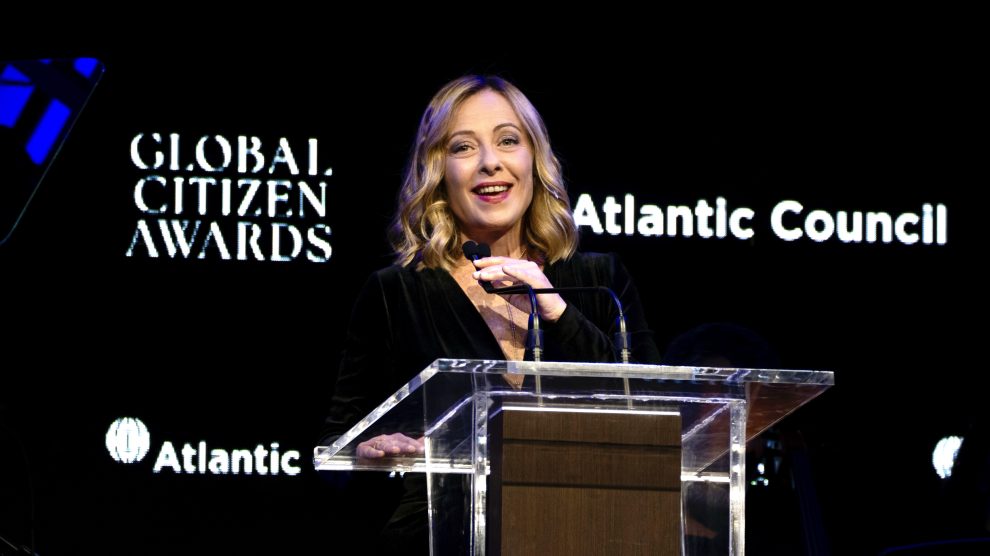A night in New York City. Italian Prime Minister Giorgia Meloni delivered a compelling speech in New York City, where she was honoured with the Global Citizen Award by the Atlantic Council.
- Her address focused on the challenges faced by the West and the need to uphold its core values in order to tackle these threats.
- During the gala, Elon Musk personally presented the award to Meloni at her request. The event coincided with her visit to New York for the 79th United Nations General Assembly.
- In her speech, Meloni referred to an op-ed published a year ago in Politico by Anthony J. Constantini, which described her policies as “Western nationalism.” This theme was central to her message, grounded in her concerns for the future of Western civilisation.
The risks for the West. Meloni highlighted two main risks confronting the West. The first, she explained, is what conservative philosopher Roger Scruton called oikophobia, or “the aversion to one’s home.”
- She warned that this self-rejection could result in attempts “to violently erase the symbols of our civilisation, in the US as in Europe.”
- “The second risk,” she continued, “ is the paradox that, while on the one hand the West looks down on itself, on the other hand it often claims to be superior to the others.” The result “is that the West is in danger of becoming a less credible interlocutor.”
In the global disorder. She then addressed the shifting global order, noting the increasing demand for influence from developing countries in the Global South.
- “The so-called Global South is demanding more influence. Developing nations that are by now largely established are autonomously collaborating among themselves,” she observed.
- In response to these changes, she highlighted Italy’s Mattei Plan for Africa, a model of cooperation based on equality aimed at building a long-term partnership with African nations.
- Meloni positioned the plan as part of a broader strategy to navigate a world where “crises are multiplying.” She added, “every crisis hides also an opportunity, for it requires to question oneself, and to act.”
The answer to declinism. Meloni stressed the importance of patriotism as a safeguard against decline, stating that “patriotism is the best response to declinism.” Quoting the Italian intellectual Giuseppe Prezzolini, she added, “Defending our deep roots is the precondition for reaping ripe fruit.”
- She emphasised the importance of learning from history to confront today’s complex challenges. “We know how to face the impossible challenges that this era confronts us with only when we learn from the lessons of the past,” she said.
- She linked this philosophy to Italy’s support for Ukraine, opposition to human trafficking, and commitment to environmental conservation.
- “We defend Ukraine for we have known the chaos of a world in which the law of the strongest prevails. We fight human traffickers because we remember that, centuries ago, we fought to abolish slavery. We defend nature and humankind, because we know that without the responsible work of humans it is not possible to build a more sustainable future,” she proclaimed.
Managing AI. Meloni also touched on the rapid development of artificial intelligence and the necessity of managing its risks.
- “As we develop artificial intelligence, we attempt to govern its risks because we fought to be free and we do not intend to trade our freedom in exchange for greater comfort. We know how to read these phenomena because our civilisation has given us the tools,” she concluded, reaffirming her belief in the resilience and strength of Western values.





